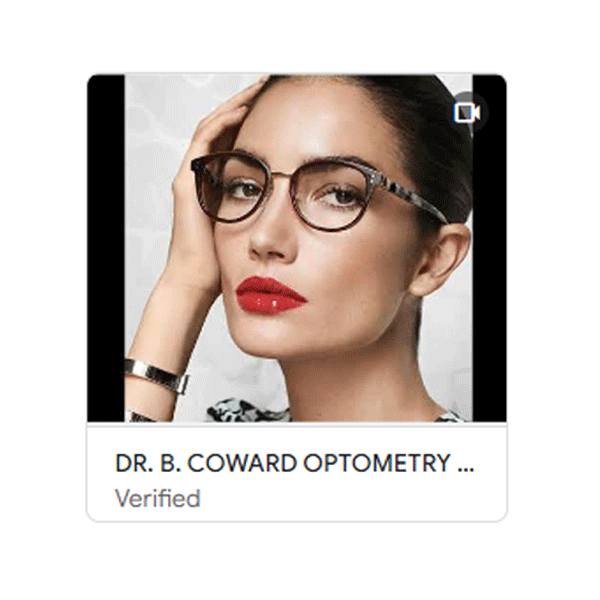Eyecare PPC: Expert Insights Made Simple
By abdul.rehman@opticommerce.co.uk | May 29, 2024

In this blog, Shane Quilty, Associate Brand Manager for OptiCommerce, interviews PPC Expert, Gemma Piedrafita to gain valuable insights into how eyecare businesses can benefit from having a strong PPC strategy in place.
- Tell us a bit about yourself.
I have been working in the digital marketing industry since 2013. One of my most memorable work experiences was with Google. I learned about PPC and SEO first-hand from the experts who created the channels. As part of my role I would even teach other advertising agencies around the United Kingdom how to optimize their businesses for Google, which was a great learning curve.
- Thanks Gemma. So, in a general sense, what *is* PPC and do you think it’s important for a successful marketing strategy?
PPC stands for ‘pay-per-click’. Basically, you are paying for your ads to be clicked on in search engines such as Google or Bing. These ads then direct people to a destination, such as your website or a video. SEO goes hand-in-hand with the overall strategy too, of course.
Google Ads gives you the power to compete for customers with much larger businesses, and the opportunity to occupy positions 1-4 in Google search for products and services that you provide. This type of advertising is also incredibly scalable, so you can increase or decrease leads or sales, depending on your business needs. Ads work for both patient appointment scheduling and eCommerce sales.
It’s a bespoke service, so you have full control over your desired goal, whether that be website traffic, brand awareness, or conversions (glasses sales or online appointment bookings). You can segment your exact target audience and adjust your budget based on how much you want to spend and how often. Optimizing your strategy for keywords that people are searching for is crucial. Having a PPC strategy in place is going to benefit your business hugely.

- Do you think digital marketing for eyecare professionals is important? How would a PPC strategy benefit an optical business specifically?
In 2024, digital marketing for any optician or optometrist is essential for business growth and increasing revenue. PPC is a very customizable process, which is particularly useful for the optical industry. For example, you can have people click to directly book an appointment with you in-store with minimal effort involved for you and the customer.
- Sometimes there’s a perception that if you have a beautiful website it’s going to do all of this for you, but it’s a matter of people actually being able to find your site in the first place, right?
Yes, absolutely. I make a point of walking our clients through the process so they understand where their money is being spent and why.
- We’ve already touched on this, but what are some benefits of having a strong PPC presence?
Well, for one, it provides you with a lot of insights into the type of customers you’re dealing with and what services they’re looking for. You have visibility of the customer journey as they click on the ad and navigate through your website. This will help you better understand what people want from you, and also how certain products and services are performing from a sales point of view.
You can also have the ability to track calls that come through from PPC ads. These can be recorded so you can listen back to see how positive the customer experience is and what they’re requesting over the phone.
- Do you have a rough idea of some results an eyecare company could expect from a PPC campaign?
This varies from client to client, but we can provide estimates on an individual basis. We let the PPC campaign run and gather data for a period of time, or we base our strategy off historical data. This helps us determine what the average cost per click should be, what content is required, which keywords will perform best for your eyecare business.
Did you know?
Source: www.publift.com/blog/advertising-in-us
The US is home to one of the most lucrative advertising industries in the world, with an ad spend of almost $300 billion in 2023.
- What would you say to anyone who is apprehensive or hesitant about investing in a PPC strategy for their eyecare business?
As we’ve established, digital marketing for eyecare businesses is essential, though it’s understandable to have reservations about spending and costs these days. I would say that PPC offers you a lot of clarity around where your money is being spent, though. Google Ads offers the opportunity to measure your return on investment very accurately. This means you can create different campaigns for products (contact lenses, glasses, accessories) and services (eye examination, lasik, urgent eyecare) and understand the cost it takes to generate leads and sales.
Cross referencing the Cost Per Action (Lead or Sale) vs. your profit margin per product or service will then provide your Return On Investment (ROI) figure. You can elaborate further on this number by factoring in whether each new sale or patient is form a new customer and factor in the lifecycle of that customer to look at your ROI from a Customer Lifetime Value perspective.
- Lastly, what are three tips you would give to increase PPC performance overall?
- It’s very important to review the search term report. This should be checked weekly as it provides you with insights into which keywords are working and which aren’t effectively using your budget.
- Optimize your content for mobile. Since everyone has the internet in their pocket, it’s important to design for desktop and mobile to ensure your PPC campaign has the best chance of success.
- Ensure tracking is set up correctly. This allows us to review the performance of the campaign effectively and adapt our strategy where needed for optimal performance.

If you’re interested in learning more about PPC and investing in your eyecare business, click the link below to book a demo with us to discuss your online potential.

Shane Quilty, Associate Brand Manager
Working as the Associate Brand Manager for OptiCommerce, Shane has been in the optical industry for three years and has six years of experience in digital marketing. Passionate about digital media & utilizing digital marketing to grow communities, Shane’s skillset lets him support eyecare professionals in elevating their business.
